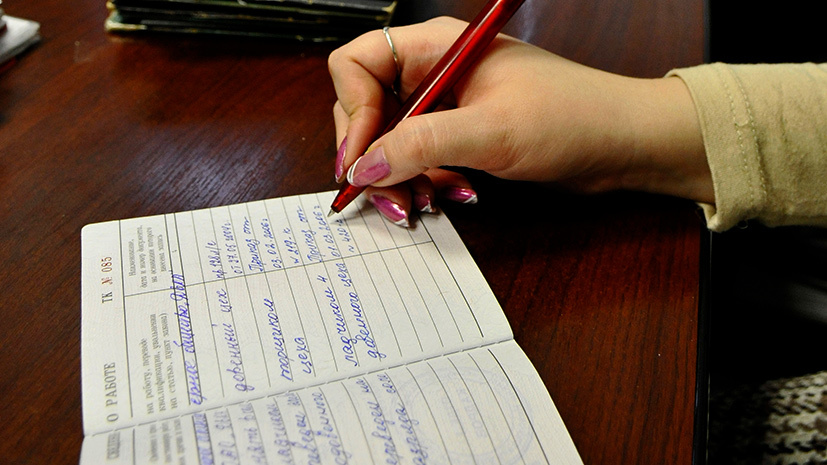From January 1, 2021, electronic labor books are introduced in Russia. The relevant amendments to the Labor Code and several other laws were introduced by the State Duma on Tuesday, December 3.
Until December 30, 2020, all employers will have to notify employees in writing of the right to switch to the electronic version of the workbook. The employee decides whether he wants to save a paper version of this document or switch to electronic.
“Every employee through December 31, 2020 will be able to submit to the employer a written statement about which form of maintaining the workbook he chose, but if the application was not submitted, the employer will continue to keep the workbook in paper form,” the State Duma website reported.
When switching to the electronic version, paper labor books will be handed over to employees. All data contained in it, as well as new information will be stored electronically.
Those who begin their labor activity after December 31, 2020 will not have paper books on paper.
“As part of digitalization”
Chairman of the Federation Council Committee on Social Policy Valery Ryazansky in an interview with RT noted that the decision of the State Duma has become part of the overall process of modernization in Russia.
“Such a law, frankly, has long been brewing. If we talk about what can be done as part of the digitalization of the system for fixing labor relations, this is, of course, an electronic work book, ”he explained.
He also explained that in the process of discussing amendments to the law in the State Duma, a discussion broke out about which form of document storage is more reliable. Deputies discussed whether the electronic form of information storage is a guarantee that data will not be lost.
- © Mikhail Mordasov / RIA News
According to Ryazansky, on the one hand, there were cases when some citizens who began their work in Uzbekistan, Tajikistan, and Azerbaijan could later prove the right to payments in the pension fund only thanks to the paper workbooks they had kept. On the other hand, one also had to deal with situations where labor books, for example, were burned out. Justice had to be restored through the courts. The deputy stressed that if the data were stored on electronic media, then such problems would not have arisen.
“We are in favor of having the opportunity to record the entire labor history on electronic media. Who wants to receive an extract in paper form - please, this can always be done. But this is what is stored, that which will not be lost, will not burn in the fire ... This, in my opinion, is all timely and, most importantly, modern, ”Ryazansky concluded.
In May 2019, Ryazansky also announced that the Pension Fund of Russia (PFR) has already 100% digitized the labor books of Russians.
Implementation process
State Duma Chairman Vyacheslav Volodin noted that the transition to electronic work books will be "voluntary and gradual." According to him, about 60 million employees and 8.4 million business entities, including entrepreneurs without a legal entity, will affect the innovations.
Earlier, the Ministry of Labor reported that the transition to an electronic version of work books will be absolutely free for the employee.
The employee will be able to request data on labor activity directly from the employer, both in paper and electronic forms. In addition, the MFC and the FIU will provide the same information.
The management of companies and government agencies will have to promptly notify the Pension Fund of all changes that were previously made in the paper version of the work book. At the same time, the State Duma introduced administrative responsibility for violations of the deadlines for sending data, for their incomplete provision or distortion.
If the employer conscientiously fulfills all the requirements for processing and storing information, then he will only win.
“The benefits are obvious, including reducing employer costs associated with maintaining and keeping paper work books. Here, savings are considered in different ways, but in any case, it’s hundreds of millions of rubles, ”Russian Prime Minister Dmitry Medvedev said earlier.
Volodin also noted that the new law relieves employees of the personnel department from unnecessary labor costs.
“This is especially important for large enterprises with a large number of employees,” said the chairman of the State Duma.

